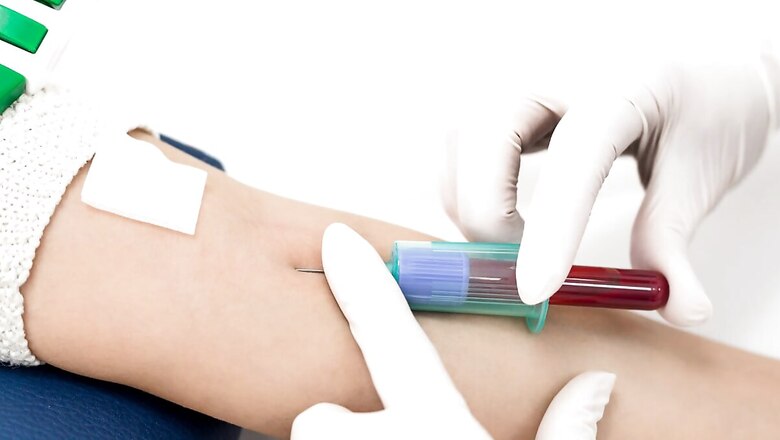
views
If you are a female, a youngster with pre-vaccination Covid, a person with weak health, or you had a bout of typhoid just after having your coronavirus vaccine, your chances of showing a side effect from Covaxin are higher than others, a study conducted by researchers at the Banaras Hindu University found.
Skin disorders, nervous system disorders, menstrual abnormalities, malfunctioning of eyes, and hypothyroidism are some of the reported “special events” or post-vaccination side effects.
According to the observational study conducted from January 2022 to August 2023, published on the peer-reviewed platform Springer, the female individuals, adolescents with pre-vaccination Covid-19, those with co-morbidities, or those with post-vaccination typhoid had respectively 1.6 times, 2 times, 2.7 times, and 3.2 times higher odds of persistent side effects or having “an event of special interest”.
“Adults with co-morbidities had more than 2 times higher odds of AESIs and persistent AESIs,” said the report titled “Long-Term Safety Analysis of the BBV152 Coronavirus Vaccine in Adolescents and Adults: Findings from a 1-Year Prospective Study in North India”.
The emergence of adverse events following the administration of Covaxin showed distinct patterns compared to those with other Covid vaccines, it said, adding that “most of the adverse events of special interest (AESIs) persisted at the one-year follow-up”.
The study found that the adverse events or side effects also varied between adolescents and adults.
What Bharat Biotech Says
Covaxin is the first made-in-India Covid-19 vaccine, manufactured by Hyderabad-based Bharat Biotech along with the Indian Council of Medical Research (ICMR).
“For such a study in safety to be effective, and informative and to avoid investigator bias, the following data points are also required…,” the press release from the maker Bharat Biotech said following the publication of the study.
It went on to list four points: “AESI safety profile of the subjects before participation in the study, comparison of the safety profile of non-vaccinated subjects during the course of the study. Comparison of the safety profile of subjects who received other vaccines during the course of the study.” It added that “All study participants should be followed during the course of the study, instead of only a subset. Several studies have been executed on the safety of COVAXIN, and published in peer-reviewed journals, demonstrating an excellent safety track record.”
What The BHU Study Showed
Out of 1,024 individuals enrolled in the study, 635 adolescents and 291 adults were contacted during the 1-year follow-up, done telephonically. The risk factors were identified if they were persistent for at least one month.
Almost 30 per cent of the participants reported viral upper respiratory tract infections, around 304 (47.9%) adolescents and 124 (42.6%) adults in this period.
Skin diseases (10.5%), general disorders (10.2%), and nervous system disorders (4.7%) were the common AESIs in adolescents. In contrast, in adults, general disorders (8.9%), musculoskeletal disorders or problems related to joints or bones (5.8%), and nervous system disorders (5.5%) were common.
In females, menstrual abnormalities were noticed in about 4.6% of participants. Problems with eyes and hypothyroidism were observed in 2.7% and 0.6% of participants, respectively.
“Among serious AESIs (1%), stroke and Guillain–Barre syndrome were identified in 0.3% and 0.1% of participants, respectively,” the study said while adding that “among adolescents, female individuals, those with a history of allergy and post-vaccination typhoid were respectively at 1.6, 2.8, and 2.8 times higher risk of AESIs”.
Explore in-depth coverage of Lok Sabha Election 2024 Schedule, Voter Turnout, Upcoming Phase And Much More At News18 Website




















Comments
0 comment